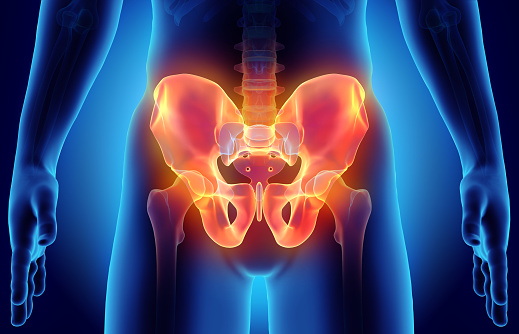A woman’s body undergoes several changes throughout her life span, whether it is the beginning of her menstruation or the baby. Despite all these biological challenges, we see every woman doing her chores normally, whether running errands or competing in sports.
But now, scientists have revealed that early adulthood physical activities result in pelvic floor disorders.
Image Credit- Pixabay
What are pelvic floor disorders?
Pelvic floor disorders affect the normal functioning of women’s pelvic organs, leading to weaker muscles and tissues.
Image Credit- Wikimedia Commons
What is the cause of these disorders?
At younger age when we are thinking less, and thriving more, we don’t think much about the consequences that we have to face later. We have a very active lifestyle and our energy levels are pretty high. People work out to enhance their muscle strength and build a stronger body, but it may also put excess pressure and stretch the muscles. As we age, our muscles’ ability to perform deteriorates over time called muscle fatigue.
Excess workouts can lead to faecal incontinence, constipation, urinary incontinence, and various other disorders. The study has shown that these disorders are quite common. Females who have been involved in competitive sports have shown symptoms of urinary incontinence but no other symptoms. On the other hand, women who have been involved in physical activities showed symptoms of faecal incontinence only.
As females reach menopause age, their body has already gone through a lot of things. In the 9 months of pregnancy, the pelvic region becomes quite sensitive in case of normal deliveries and the recovery might take some time as the years pass, and these problems start increasing. Around 11.5 to 35 per cent of women suffer from PFDs (pelvic floor disorder) worldwide.
How can these disorders be cured?
These disorders do not cure on their own and proper treatment/ medication is required to avoid the discomfort. Lifestyle change can help us deal with problems; it is wiser to act from a younger age. Stress incontinence can be treated with pelvic floor exercises, with a success rate of 56.1%, if the problem continues, surgery is also an option. Early treatments like physiotherapy and proper medication can cure most of these problems. Women don’t usually talk about these issues due to social stigma and shame; hence, most of them suffering from PFDs remain untreated.
Overactive bladder can be treated by biofeedback. Biofeedback works by connecting electrical sensors to the body and inducing changes in the muscles. Qualitative studies of the symptoms and self-care practices can help us get over the disorders. Women who wish to have a baby in future and are actively involved in physical activities like weight-lifting and sports should take professional guidance.
This study was published in the BJOG An International Journal of Obstetrics & Gynaecology.
If you enjoyed reading our articles, please consider supporting us by buying our geeky merchandise on Instagram.
Alternatively, you could Buy us a coffee or follow us on Facebook, Twitter, Pinterest or Medium!





